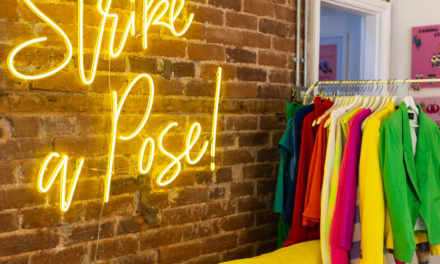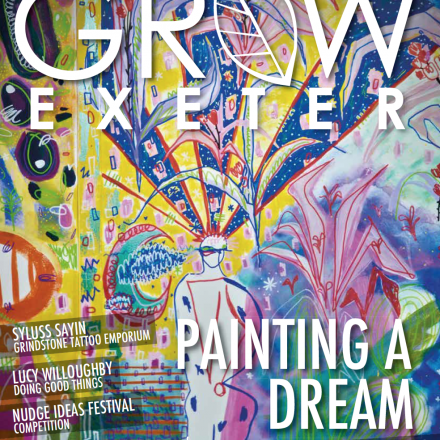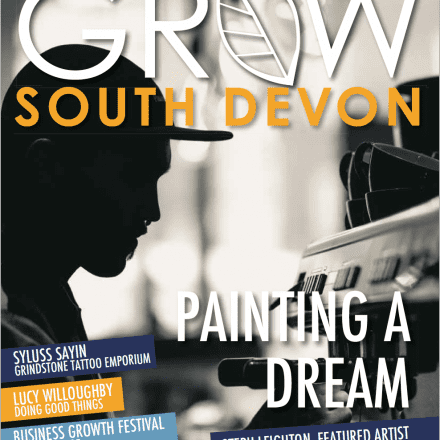
Milestones For A Modern World
Grow Talk by Sofy Robertson
When we think of traditional milestone events in life, the obvious ones that spring to mind are coming of age, getting married and having children. Though these still may be major markers for adult life, they may no longer be the most important measures by which to gauge our adult success.
There is no hiding from that fact that our modern society is drastically different from a society just twenty years previous; the prevalence of technology and social media, the shifts in economy and values and so much more has contributed to a change in the markers of adulthood. We are experiencing life markers that we may not have just half a century ago, such as moving in with a partner, and those more ‘traditional’ markers like getting married or owning our own homes have seen a drastic shift in terms of when they happen on an average adult timeline.
Grow Talk delves into how these life events are changing and why these shifts are occurring to offer a snapshot of Milestones for a Modern World.
19 Years Old; Starting Full Time Work
At nineteen years old, 50% of people are in full-time employment. In the past twenty years, only two age groups have seen their employment rate decline: those aged 16-17 and those aged 18-24.
The main factor behind this decline is education; more young people are staying on at schools and colleges and progressing to university. Between 1998 and 2018, the average age that people left education increased from 17.8 years to 19.3 years.
This increase has been partly driven by official changes as in 2015 the age at which you are expected to stay on in education changed from 16 to 18 for students in England. However, the main explanation is the increase in people choosing to remain in education beyond 18 with around a third of 18-year-olds now going on to university compared with a quarter in 2006.
23 Years Old; Moving Out
On average, people are living with their parents longer than they used to. In 1997, more than 50% of 21-year-olds had already left home whereas two decades later, the first age at which 50% of young people had left their parental home was 23.
Young men are more likely to stay with their parents longer than young women; in 2017, 37% of men aged 18-34 years-old lived with their parents compared with 26% of women in the same age group.
Potential reasons for this could be that women have traditionally moved in with a partner at younger ages than men and women are also more likely to go to university.
Living with parents is now the most common living arrangement for young adults. In 1997, the most common living arrangement for those aged 18-34 years old was as a couple with one or more children. By 2017, this had changed to young adults living with their parents.
The most likely cause of this has been the increase in cost in both renting and buying homes. The average age at which people get married and have children has also risen. These factors in combination with the number of people staying in education and not working full-time may have encouraged more young adults to live with their parents for longer.
27 Years Old; Moving in with a Partner
Unlike many of the other milestones, the age at which people move in with a partner has not changed much over the last few decades, fluctuating between 26 and 27.
More than 50% of 27-year-olds were living with a partner in 2017. Women are more likely to move in with their partner earlier than men, with more than 50% of 26-year-old women living with a partner.
29 Years Old; Having a Baby
The age at which women have their first child has been increasing for more than forty years. In 2016, the average age of a first-time mother was 29; this was two years later than in 1997.
There are no figures available for the average age of first-time fathers as when births are registered, fathers aren’t asked if they have children already. On average, the age of fathers in England and Wales is around three years higher than for all mothers. In 2017, the average age of all fathers (not just first-time fathers) in England and Wales was 33.4 years, compared with 31.5 years in 1997.
We can speculate as to the reasons for this; with more people, and in particular women, undertaking college and university degrees this could push back aspirations to start a family. This also has a direct effect on when people are starting employment with career priorities then becoming greater than starting a family. Finally, as many young people are living with parents for longer, the goal of moving out and having their own property may thus be a more urgent consideration before starting a family.
32 Years Old; Getting Married
Traditionally, marriage has been viewed as a precursor to having children. However in the UK today, people in their 20s are more likely to have children than be married. The average age of first-time marriage increased in 2015 to 33 for men and 31 for women (up from ages 30 and 27 respectively in 1997).
Looking back a little further, the increase in age of first-time marriages is even more pronounced. In England and Wales in 1979, 94% of 34-year-old women, and 88% of 34-year-old men were currently married or had been married. By 2015, this figure had fallen to 51% of 34-year-old women and 41% of 34-year-old men.
The number of opposite-sex marriages fell by 3.4% from 2014 to 2015, with marriage rates for opposite-sex couples
“now at their lowest level on record following a gradual long-term decline since the early 1970s”. (BBC)
There are numerous potential reasons for people choosing to get married later in life or not get married at all. A significant consideration has to be the rise in wedding prices and house prices over the years, which has increased the cost of setting up a family considerably. With the average cost of a wedding in the UK reaching £30,355, it is no wonder that many couples are choosing to ditch tradition in favour of saving for a house, or even just a holiday.
There is also undoubtedly a change of attitude towards marriage; it is no longer frowned upon to live together when unwed and there is less parental pressure to marry. Marriage was previously seen as an obligation and a precursor to having children, whereas now it is viewed as a choice and a reaffirmation of a couple’s love to their friends and family.
As divorce rates rise, the impact of seeing parents go through painful break-ups can also be considered. Peter Saddington, a relationship counsellor with the charity Relate explains:
“Increasingly, more children are growing up in relationships where parents have separated… this is one of the biggest influences on whether or not they [themselves] want to get married.”
Don’t despair Grow readers, the age of romance is not necessarily dead. The decline in marriages and the increasing age that people are choosing to get married does not speak to a lack of serious or long-term relationships in the UK. Instead, it suggests that the value of marriage itself has declined and that many couples no longer see it as an obligation, or even a priority, in their relationships.
34 Years Old; Becoming a Home Owner
Unsurprisingly, the age at which people own their own home is continuing to rise. It is only at the age of 34 that more than 50% of people live in a home they own (based on the age of household reference persons, individuals within a household who act as a reference person for all individuals in the household). The age of becoming a home owner has seen an almost ten year increase since 1997 when the youngest age at which more than 50% of people became homeowners was 26.
Over the last twenty years, renting, whether from the private or social sector, has become more common across all but the oldest age groups. The most substantial change has been seen for those aged between 25 and 34. Of those among this age group in 2018, 55% were renting which is up 20% from 1998.
The main factors contributing to this change are likely to be financially related. The cost of an entry-level property has been steadily rising and this coupled with the increase in tuition fees that those who attended University in England after 2012 have had to endure has likely led to young people taking longer to save for a house.
The disparity between the cost of buying a house and ones salary is also a necessary factor when considering why it is taking people so much longer to buy a house. In 1993, the average house price was 4.9 times the average household salary of a household headed by a 16- to 24-year-old. In 2016, it was 8.2 times (a decline from its peak of 11.2 times in 2007).
A final consideration that must be taken into account is the change in lifestyle and attitude of young people. The concept of a gap year is now an established one in the UK with many young people deferring University placements or full-time employment in favour of travel. With this in mind, renting is the sensible option for the new and relatively unsettled modern generation due to its flexibility.
Retirement; A Constantly Changing Milestone
The number of British workers who consider themselves retired before the age of 65 has been falling since 2011, from a peak of 1.6 million to 1.15 million.
Aviva has suggested that if the current rate of decline continues, then retirement before 65 could be at zero in the UK within the next twenty years.
Data taken from a study last year by Willis Towers Watson found that the number of employees expecting to work past the age of 70 has nearly doubled in seven years. David Bird, head of proposition and development at LifeSight, Willis Towers Watson’s UK DC Master Trust said:
“The fact that people are retiring later is not bad news in itself, as many studies have revealed numerous benefits associated with working longer.
“But it’s worrying that many who are expecting to retire later are not doing so out of choice and are therefore more stressed and less engaged with their job.” (The Independent)
A major factor which has likely contributed to a decrease in those retiring before 65 is the government’s increase in the age at which people can claim their State Pension. By October 2020, the age at which men and women can claim will be 66 and there are further increases planned to raise the eligibility age to 67 between 2026 and 2028.
A further contributing cause could be the need to continue earning an income to stave off debt. Since 2016, the levels of both secured and unsecured debt held by the over-65s has increased from £70bn to an estimated £85bn in just two years. This has been blamed on pension shortfalls, the launch of pensions freedoms and unexpected bills like car repairs.
Milestones We Didn’t Mention
The above milestones are by no means the only markers by which we measure our lives. A UK study of almost 2000 adults between the ages of 16-65 examined further milestones and the average age at which they occur. So, if you were wondering, here are the highlights:
The first kiss, a milestone for some and something to block out permanently for others, occurs at the tender age of 15 according to the study.
The average age to pass your driving test was 20 and becoming a bridesmaid or best man was set for 23.
Embarking on your first holiday without mum or dad should happen around the age of 21 and taking two holidays a year should be affordable by the age of 37.
How do you measure up to the average milestone?
If you’re anything like me, you may have read through the list of average ages and felt a little unsettled that you ‘achieved’ a milestone way before or way after what is considered the ‘new normal’. Equally, if you’re a knowledge geek like me, you will have found your focus drawn to the factors behind the statistics and taken a Sherlock-esque “elementary, my dear Watson” attitude in piecing together the puzzle and pondering over the differences between your generation and that of your parents.
If you would like to get in touch and tell us about your milestones, engage us on Facebook or tweet @GrowExeter.
Statistics for this article have been taken from the Office of National Statistics latest report, unless otherwise specified, which can be viewed here.
Photos by William Daigneault , Pang Yuhao , Erda Estremera , Soroush Karimi , Tim Bish , Ivan Cabañas , rawpixel , frank mckenna on Unsplash










